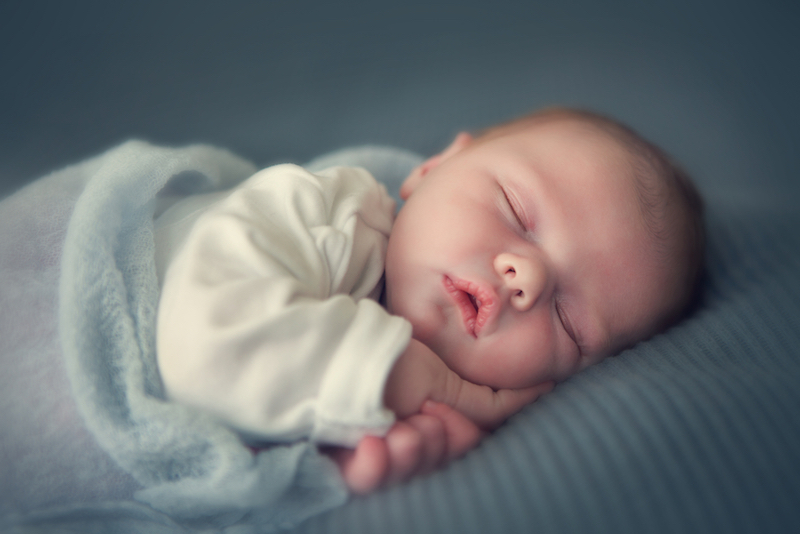Unusually Hot or Cold Weather Could Affect Babies' Weight

Unusually hot or cold weather may affect the birth weight of babies, a new study suggests.
Researchers found that women who experienced unusually hot or cold weather during pregnancy were at increased risk for having babies with a low birth weight, even when the baby was not born prematurely.
Given that global climate change is expected to lead to an increase in extreme weather events, including unusually hot or cold weather, "these results highlight the need for more research as well as public health awareness of the potential adverse effects of extreme local temperature during pregnancy," the researchers wrote in their findings, which will be published in an upcoming issue of the journal Environmental Research. [9 Uncommon Conditions That Pregnancy May Bring]
For the study, the researchers analyzed information from more than 220,000 babies born at 19 U.S. hospitals, from 2002 to 2008. They used weather data to determine the daily temperatures in the regions surrounding each hospital, and then they calculated the average temperatures for each trimester of pregnancy, as well as the average temperature during the whole pregnancy.
The researchers were interested in whether ambient temperatures might affect the risk of so-called "term low birth weight" babies — babies who are born at 37 weeks of pregnancy or later, but weigh less than 5.5 lbs.
In the study, unusually cold weather was defined as temperatures below the 5th percentile of average temperatures for a particular region, and unusually hot weather was defined as temperatures above the 95th percentile of average temperatures for a region.
This means that what the researchers considered to be hot or cold weather varied, depending on where the women lived. For example, at a hospital in Springfield, Massachusetts, unusually cold weather during a woman's second trimester was defined as temperatures below 27 degrees; but below 56 degrees at a hospital in Los Angeles; and below 70 degrees at a hospital in Miami.
Get the world’s most fascinating discoveries delivered straight to your inbox.
The results showed that the women who were exposed to unusually cold weather in the second and third trimesters, or unusually hot weather in the third trimester, were 18 to 31 percent more likely to have term low-birth-weight babies, compared with those who were exposed to milder weather in the second and third trimesters.
In addition, women exposed to unusually hot or cold weather over their entire pregnancy were about 2.5 times more likely to have term low-birth-weight babies, compared to those exposed to milder temperatures over their entire pregnancy. [10 Surprising Ways Weather Has Changed History]
"Until we can learn more, it makes sense to reduce the amount of time that pregnant women are exposed to extreme hot or cold weather," said study senior author Pauline Mendola, an epidemiologist at the Eunice Kennedy Shriver National Institute of Child Health and Human Development (NICHD). "For example, pregnant women might try to avoid prolonged outdoor exposure to extreme heat or cold whenever possible," Mendola said.
Babies may be born with a low birth weight at term (37 to 40 weeks of pregnancy) because they are genetically predisposed to small size, or because they experienced an illness, infection or failure to grow in the womb, the researchers said.
The researchers don't know why exposure to unusually cold or hot temperatures in pregnancy may affect birth weight. One possibility is that extreme temperatures could reduce blood flow to the uterus, which could affect fetal growth, they said.
The new findings held steady even after the researchers took into account factors that could have affected the baby's birth weight, including the baby's sex and the mother's body mass index.
However, the researchers don't know how much time the women in the study spent outside, or how often they used air conditioners or heaters, and this information could affect the results.
The new findings add to those of a previous study by the same group of researchers, which found that exposure to unusually cold or hot temperatures in pregnancy is linked with an increased risk of preterm birth.
Original article on Live Science.

Rachael is a Live Science contributor, and was a former channel editor and senior writer for Live Science between 2010 and 2022. She has a master's degree in journalism from New York University's Science, Health and Environmental Reporting Program. She also holds a B.S. in molecular biology and an M.S. in biology from the University of California, San Diego. Her work has appeared in Scienceline, The Washington Post and Scientific American.



